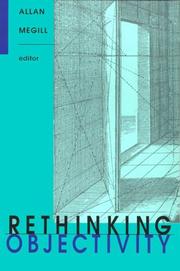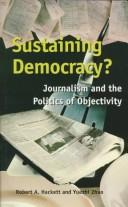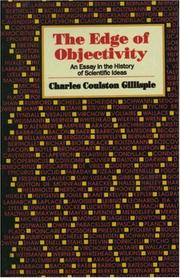| Listing 1 - 10 of 34 | << page >> |
Sort by
|
Book
Abstract | Keywords | Export | Availability | Bookmark
 Loading...
Loading...Choose an application
- Reference Manager
- EndNote
- RefWorks (Direct export to RefWorks)
Book
Abstract | Keywords | Export | Availability | Bookmark
 Loading...
Loading...Choose an application
- Reference Manager
- EndNote
- RefWorks (Direct export to RefWorks)
Journalistiek --- Oorlog --- Verslaggeving --- Irak --- Objectiviteit
Book
ISBN: 9080685887 Publisher: Utrecht Faculteit Communicatie & Journalistiek
Abstract | Keywords | Export | Availability | Bookmark
 Loading...
Loading...Choose an application
- Reference Manager
- EndNote
- RefWorks (Direct export to RefWorks)
Media --- Media-analyse --- Indonesië --- Verslaggeving --- Beeldvorming --- Objectiviteit --- Journalistieke ethiek
Book
ISBN: 9789463715300 Year: 2024 Publisher: Antwerpen Gompel&Svacina
Abstract | Keywords | Export | Availability | Bookmark
 Loading...
Loading...Choose an application
- Reference Manager
- EndNote
- RefWorks (Direct export to RefWorks)
Philosophy of science --- Computer. Automation --- toegepaste filosofie --- objectiviteit --- bewustzijnspsychologie --- wetenschapsfilosofie

ISBN: 0822314940 0822314797 Year: 1994 Publisher: Durham (N.C.) : Duke university press,
Abstract | Keywords | Export | Availability | Bookmark
 Loading...
Loading...Choose an application
- Reference Manager
- EndNote
- RefWorks (Direct export to RefWorks)
Theory of knowledge --- Objectivity. --- Geldigheid [Objectieve ] --- Objectieve geldigheid --- Objectiviteit --- Objectivity --- Objectivité
Book
ISBN: 9014092733 Year: 2002 Publisher: Amsterdam Kluwer
Abstract | Keywords | Export | Availability | Bookmark
 Loading...
Loading...Choose an application
- Reference Manager
- EndNote
- RefWorks (Direct export to RefWorks)
Nieuwsberichtgeving. --- Objectiviteit --- media. --- Mass communications --- Nieuws --- Media --- Beïnvloeding --- Journalistiek --- Reizen --- Ziekte --- Vliegen (werkwoord)
Book
Year: 1891 Publisher: Erlangen : Deichert,
Abstract | Keywords | Export | Availability | Bookmark
 Loading...
Loading...Choose an application
- Reference Manager
- EndNote
- RefWorks (Direct export to RefWorks)
History --- Histoire --- 15.02 philosophy and theory of history. --- Geschiedschrijving. --- Objectiviteit. --- Methodology. --- Philosophy. --- Méthodologie.
Book
ISBN: 9789047011255 Year: 2019 Publisher: Amsterdam Business Contact
Abstract | Keywords | Export | Availability | Bookmark
 Loading...
Loading...Choose an application
- Reference Manager
- EndNote
- RefWorks (Direct export to RefWorks)
Denk jij dat je altijd gefundeerde beslissingen neemt op basis van een grondige beschouwing van de beschikbare feiten? Vergeet het maar. Onze hersenen doen precies het tegenovergestelde: ze proberen informatie netjes in te passen in het beeld dat we al hadden en helpen ons onze pijnlijke fouten te vergeten. Volgens Julia Galef hebben de meeste mensen van nature de mindset van een soldaat: we beschermen onze overtuigingen met man en macht en negeren ieder bewijs van het tegendeel. Om vaker écht gelijk te hebben, moeten we ideeën minder benaderen als een soldaat en meer als een verkenner. Een verkenner overziet het terrein en gaat op zoek naar alle beschikbare feiten -goed of slecht- om een zo compleet mogelijk beeld te krijgen. Hij staat altijd open voor nieuwe informatie en is bereid zijn mening voortdurend bij te stellen. Soldaat en verkenner zijn allebei essentieel voor een goed functionerend leger, maar bij het nemen van besluiten is de mindset van de verkenner het nuttigst. Aan de hand van fascinerende praktijkverhalen over onder meer klimaatverandering, de Amerikaanse verkiezingen en de ongemerkte invloed van onze ouders op onze studiekeuze laat Galef zien hoe je kunt omschakelen naar de verkennersmindset, zodat je voortaan wél de beste beslissingen neemt.https://www.businesscontact.nl
Denken --- Verkenning --- Waarheid --- Objectiviteit --- Informatieverwerking --- Kritisch denken --- Beslissing --- Irrationale functies --- Rationale functie --- Executieve functies --- Brein --- Executieve functie --- Beslissen. --- Kritisch denken.

ISBN: 9781551930138 Year: 1998 Publisher: Toronto Garamond
Abstract | Keywords | Export | Availability | Bookmark
 Loading...
Loading...Choose an application
- Reference Manager
- EndNote
- RefWorks (Direct export to RefWorks)
Journalism --- #KVHA:Media --- #KVHA:Journalistiek --- #KVHA:Objectiviteit --- #KVHA:Pers en politiek --- Press and politics --- Bias in journalism --- Slanted news --- Journalistic ethics --- Objectivity --- Press and propaganda --- Political aspects

ISBN: 0691023506 9780691023502 0691079528 9780691079523 0691172528 140088358X Year: 1990 Publisher: Princeton (N.J.): Princeton university press,
Abstract | Keywords | Export | Availability | Bookmark
 Loading...
Loading...Choose an application
- Reference Manager
- EndNote
- RefWorks (Direct export to RefWorks)
Originally published in 1960, The Edge of Objectivity helped to establish the history of science as a full-fledged academic discipline. In the mid-1950s, a young professor at Princeton named Charles Gillispie began teaching Humanities 304, one of the first undergraduate courses offered anywhere in the world on the history of science. From Galileo's analysis of motion to theories of evolution and relativity, Gillispie introduces key concepts, individuals, and themes. The Edge of Objectivity arose out of this course. It must have been a lively class. The Edge of Objectivity is pointed, opinionated, and selective. Even at six hundred pages, the book is, as the title suggests, an essay. Gillispie is unafraid to rate Mendel higher than Darwin, Maxwell above Faraday. Full of wry turns of phrase, the book effectively captures people and places. And throughout the book, Gillispie pushes an argument. He views science as the progressive development of more objective, detached, mathematical ways of viewing the world, and he orchestrates his characters and ideas around this theme. This edition of Charles Coulston Gillispie's landmark book introduces a new generation of readers to his provocative and enlightening account of the advancement of scientific thought over the course of four centuries. Since the original publication of The Edge of Objectivity, historians of science have focused increasingly on the social context of science rather than its internal dynamics, and they have frequently viewed science more as a threatening instance of power than as an accumulation of knowledge. Nevertheless, Gillispie's book remains a sophisticated, fast-moving, idiosyncratic account of the development of scientific ideas over four hundred years, by one of the founding intellects in the history of science.Featuring a new foreword by Theodore Porter, who places the work in its intellectual context and the development of the field, this edition of The Edge of Objectivity is a monumental work by one of the founding intellects of the history of science.
Science --- Sciences --- History --- Philosophy --- Histoire --- Philosophie --- Pure sciences. Natural sciences (general) --- Philosophy of science --- History. --- Philosophy. --- 165.42 --- 50 --- 50 Generalities about the pure sciences --- Generalities about the pure sciences --- 165.42 Kennis: omvang van de geldigheid; subjectiviteit; objectiviteit --- Kennis: omvang van de geldigheid; subjectiviteit; objectiviteit --- Science. --- SCIENCE / History.
| Listing 1 - 10 of 34 | << page >> |
Sort by
|

 Search
Search Feedback
Feedback About UniCat
About UniCat  Help
Help News
News